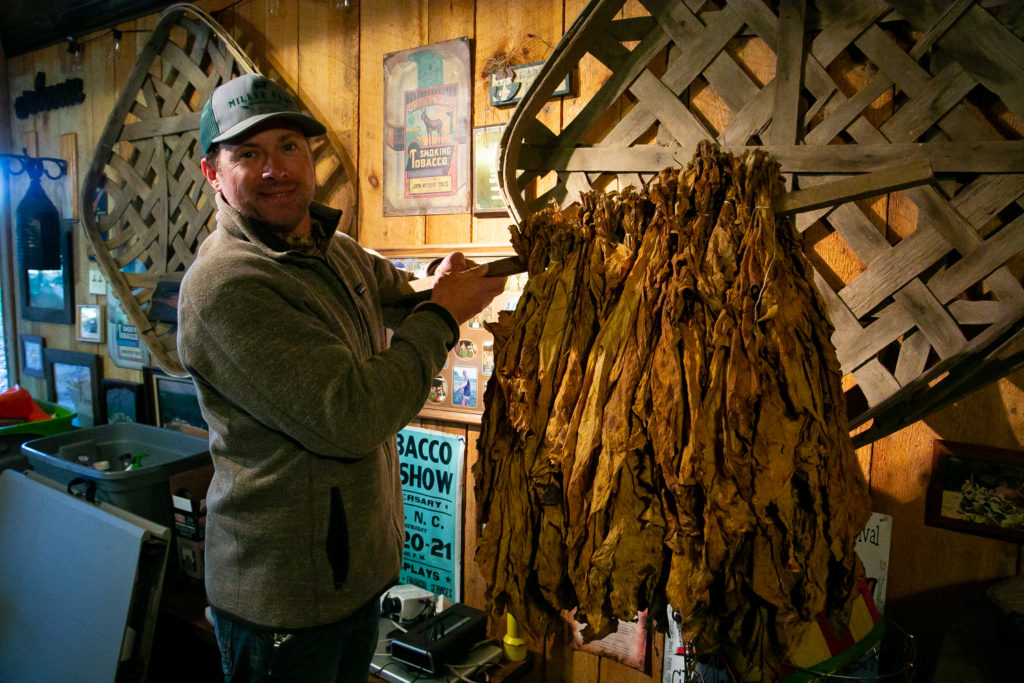Helping to Diversify Local Farms: NC Farm School
go.ncsu.edu/readext?633300
en Español / em Português
El inglés es el idioma de control de esta página. En la medida en que haya algún conflicto entre la traducción al inglés y la traducción, el inglés prevalece.
Al hacer clic en el enlace de traducción se activa un servicio de traducción gratuito para convertir la página al español. Al igual que con cualquier traducción por Internet, la conversión no es sensible al contexto y puede que no traduzca el texto en su significado original. NC State Extension no garantiza la exactitud del texto traducido. Por favor, tenga en cuenta que algunas aplicaciones y/o servicios pueden no funcionar como se espera cuando se traducen.
Português
Inglês é o idioma de controle desta página. Na medida que haja algum conflito entre o texto original em Inglês e a tradução, o Inglês prevalece.
Ao clicar no link de tradução, um serviço gratuito de tradução será ativado para converter a página para o Português. Como em qualquer tradução pela internet, a conversão não é sensivel ao contexto e pode não ocorrer a tradução para o significado orginal. O serviço de Extensão da Carolina do Norte (NC State Extension) não garante a exatidão do texto traduzido. Por favor, observe que algumas funções ou serviços podem não funcionar como esperado após a tradução.
English
English is the controlling language of this page. To the extent there is any conflict between the English text and the translation, English controls.
Clicking on the translation link activates a free translation service to convert the page to Spanish. As with any Internet translation, the conversion is not context-sensitive and may not translate the text to its original meaning. NC State Extension does not guarantee the accuracy of the translated text. Please note that some applications and/or services may not function as expected when translated.
Collapse ▲In a time when the younger generations leave their rural homes in pursuit of higher education and newfound opportunities, Noah Miller was no different as he set off for college to study sustainability. This eventually led him even farther away, as far as Thailand, halfway across the world to work and travel.
“We are in the process of enhancing pastureland and improving fencing for more efficient management of our herd.”
Noah Miller of Miller Farms in Stony Point, NC intends to make sure that the farm also provides him with a solid financial return by investing in greenhouse production, agritourism, and vineyards all topics he learned about in NC Farm School.

Eventually home came calling and Noah found his way back to Stony Point, North Carolina. His father was ready to pass on the farming torch. However, this time, Noah saw opportunities at home.
Noah’s family farm was traditionally a tobacco farm. “When tobacco farming became too demanding for my family, we decided to transition to beef cattle production.” Noah explained, “Located in the foothills, our farm has many open fields and streams that make transitioning to beef cattle production a natural fit.”
Noah enrolled in NC Farm School to complement his education in sustainability. “NC Farm School emphasizes the big picture that we are not alone by introducing us to an entire network of support including teachers, agents, specialists, and other farmers ready to help.”
Under his farming vision, he plans on using the land’s natural resources sustainably to ensure that the farm remains resilient for future generations. “We are in the process of enhancing pastureland and improving fencing for more efficient management of our herd.” He intends to make sure that the farm also provides him with a solid financial return by investing in greenhouse production, agritourism, and vineyards all topics he learned about at NC Farm School.
Noah reflects appreciatively on his family influence on his life. “I’ve been told that when I was old enough to sit up, my grandma would place me in a cardboard box at the end of a tobacco row under the watchful eye of my grandpa while she helped set out the tobacco crop,” explained Miller. “So I guess you could say I’ve been farming all my life.”
Noah offers a tour of the farm from the cow pastures to the farm’s renovated tobacco barn that has become a small historical museum, an archive of his family’s tobacco farming tradition. Returning to his family farm was an intentional decision. He credits his grandparents and parents for his love of his family’s land. Working outdoors, the freedom of working for himself, his connection to his family’s farming tradition all guided him in his decision to plant himself back at Stony Point.
To learn more about our 2020 programs or to apply for one of our locations visit our website.


